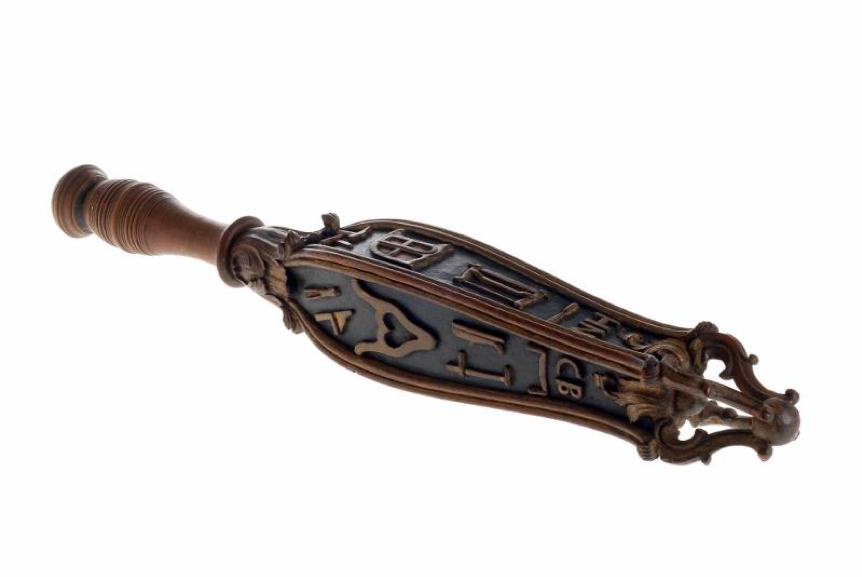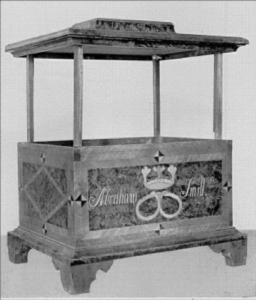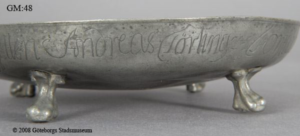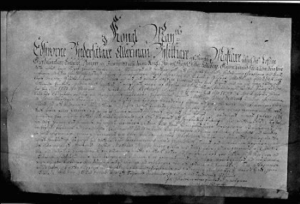Ceremonies
The ceremonies and ordinances attached to the guildFencing traditions come alive
Ceremonies
Fencing Oath, Paris, 1520-40
LA PROMESSE que, au maistre font,
Sans tarder ils l’accompliront:
Tous escolliers premièrement,
De bon cueur et volunté franche,
Lever la main bien haultement
Doibt l’escollier, sur l’espée blanche,
Puis affirmer certainement
Qu’il accomplira l’ordonnance,
Disant: Vous jurez en créance
Et vostre part de paradis,
Que ce jeu honneste et requis,
Ne le apprendrez nullement
Pour donner empeschement
Contre l’église, ne la foi,
Ne pour aller contre le Roy
Nostre Sire, ne pour meurtrir,
Guetter boys, ne faire mourir
Aulcuns qui passeront leur chemin:
Ne pour faire larrecin,
Ne faire tort et desplaysir,
Ne pour filles violer
Femmes ravyr ne efforcer,
Ne pour faire aulcun effort,
Si n’estoit que on vous feist tort,
Sans cause, et par entreprise
Vous oster vostre marchandise.
PREMIÈREMENT, sçavoir tu doibs
Que quand tu fais le serment
Six blancs payer te fault comptant,
Et les mettre sur la croisée
De la dague, ou de l’espée,
Ou bouclier et par révérence,
Le maistre dira la signifiance;
Pinte et pain tu doibs payer
Car c’est le droict des escolliers;
Et quand en roue tu veulx passer,
Six blancs aussi te fault payer;
English translation
The promise which they make to the master,
they shall make without delay:
Firstly, all the scholars
with good heart and of free will,
raise their hands up high;
the scholar shall, upon the white sword
affirm with certainty
that he will abide by the ordinance,
saying: Do you swear on your faith
and by your place in Paradise
that you are not learning
this honest and necessary game
in order to do harm
against the Church, nor the Faith,
le Roy nor to go against the King
our lord, nor to commit murder,
to lurk in the forest, intending to kill
those who travel on their way;
nor to commit robbery,
nor to commit wrong or misdeeds,
nor to violate girls
nor to ravish or oppress women
nor to commit any act against another
unless they mean to do you wrong
without cause, attempting
to deprive you of your property.
Firstly, you should know
that when you take the oath
you must pay six blancs in cash
and place them upon the cross
of the dagger, or of the sword,
or the buckler; and with reverence,
the master will tell you the meaning.
For bread and drink you must pay
for this is the right of the scholars.
And when you pass onto the rolls,
you must pay six blancs as well.
Guild Objects
The images to the right are historical guild objects from craft guilds. Similar objects were used by fencing guilds from the medieval period an onwards, together with specific objects tied to their practise, like laurel wreaths, gloves and sharp swords.
Lists — a list of apprentices, a list of journeymen, a list of masters, a list of aldermen
Guild chest — contains documents, lists, insignia, welcome goblet etc. Traditionally had three keys (for the Alderman and two helpers). When the chest is open, the meeting is open.
Guild book — contains rules and events of the guild, for example winners of tournaments, club events etc.
Alderman staff (schafferholtz, ferule, klapholtz) — used as a symbol for the alderman. Used to knock on chest three times at opening and three times at closing of meetings.
Signet — stamp for the club or guild
Welcome goblet — Used in ceremonies to welcome students to new ranks
Banner — guild insignia to use when competing or meeting

Schaffer holtz

Guild chest

Welcome goblet

Journeyman letter

Sigill stamp

Money box

Beating of journeyman during initiation ceremony

Parading the journeyman

Guild sigils, 1585